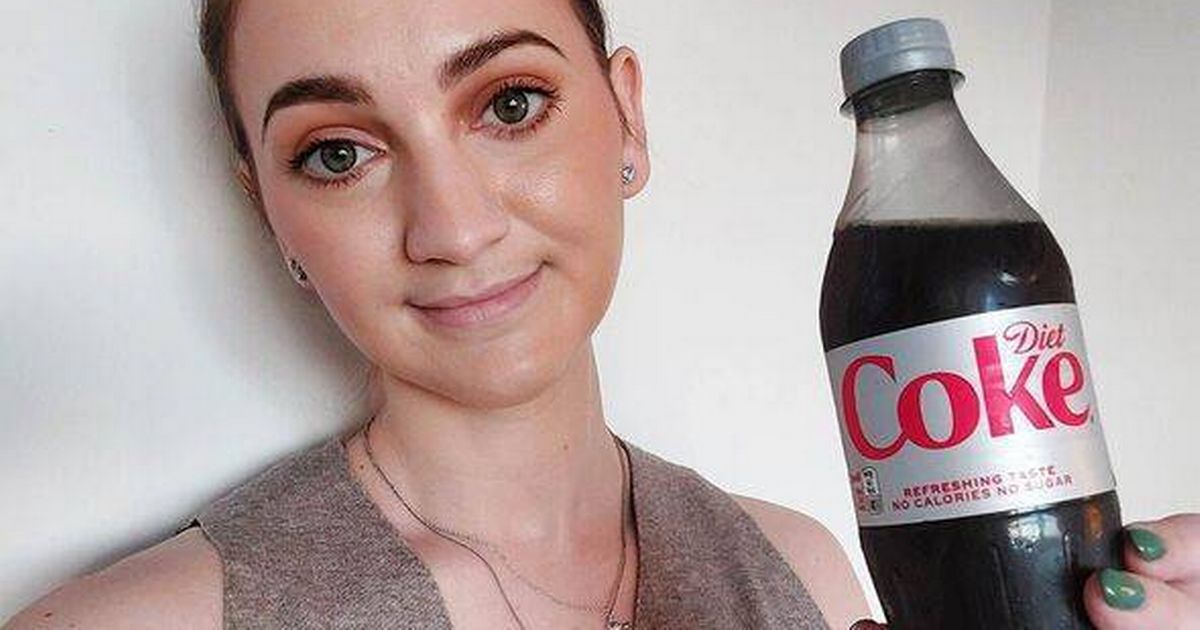Many people relish the moment they pop open a cold can of Diet Coke, and I was no different until health issues prompted me to abandon sparkling drinks, including my favoured Diet Coke. I loved the caramelised flavour, the bubbles on my tongue and the slight burning sensation as it hit the back of my throat.
My preference for fizzy drinks wasn’t limited to Diet Coke as I would often head to the supermarket to stock up on lemonade, fizzy orange, Pepsi among others.
Ignoring my dentist’s cautionary advice concerning my choice of beverages, I thought if they didn’t contain sugar, they couldn’t be that bad for me, right? My consumption of fizzy drinks might have continued unchecked if not for my health condition. When my GP prescribed a diet that excluded carbonated drinks, along with my morning latte, I was devastated but resolute in my decision to get better. For the latest health and Covid news, sign up to our newsletter here
Consequently, I eliminated all fizzy drinks from my diet, which proved challenging initially. The first week was tough. Not only did I miss the taste, I also noted the absence of the caffeine boost. You can read the original version of this article here on The Express.
According to the Food Safety Authority of Ireland, a 500ml bottle of Diet Coke contains 64mg of caffeine, which is more than a 200ml cup of tea (45mg) or instant coffee (60mg). I was “somewhat shocked” when I calculated my daily caffeine intake.
Between my lunchtime Diet Coke and my morning latte, made with two espresso pods, I was consuming just under 200mg of caffeine. When I started getting headaches and feeling irritable and tired, I should have realised it was caffeine withdrawal. Healthline suggests that caffeine withdrawal symptoms can last anywhere from two to nine days. Fortunately I began to feel like my old self after a few days.
It’s been four weeks since I last had a fizzy drink and during this time I’ve noticed several positive changes in my body. One of the most significant transformations is an improvement in my sleep quality. I’ve always struggled to fall asleep but now I nod off in a matter of minutes. I can’t attribute this entirely to giving up fizzy drinks as I also quit my coffee habit but ditching caffeine in general seems to have massively improved my sleeping pattern.
Another massive difference I’ve noticed is my teeth. I’ve always had a slight yellow hue to my teeth due to years of drinking coffee but quitting both drinks has made them noticeably less yellow.
I’ve noticed a decrease in my desire for sweet snacks, and research published in JAMA Network Open supports my experience, indicating that diet sodas with artificial sweeteners may be driving those cravings. The study highlights that sucralose can trigger increased hunger and a boost in “brain reward activity”, leading individuals to feel the need to eat after consuming products with artificial sweeteners.
While I won’t be drinking fizzy drinks again, I understand how giving up these delicious beverages for good can be challenging. Some of the best alternatives for carbonated drinks I’ve found include matcha lattes, peppermint tea, chai lattes and teas, homemade flavoured water, smoothies and juices.

![webnexttech | For some reason, the Russians seem bound and determined to re-take Kursk before January, annnnd....it's not going well for them [Interesting]](https://webnexttech.com/wp-content/uploads/2024/11/131120241731456072-200x110.jpeg)



